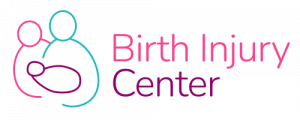NEC Lawsuit
Parents across the United States are suing Abbott Laboratories and Mead Johnson & Company, alleging that premature babies who were fed certain cow’s-milk baby formulas developed necrotizing enterocolitis (NEC), a life-threatening neonatal intestinal disease affecting premature infants.
They also allege that the companies failed to adequately warn parents about the risk of NEC that has been linked to their products.
Abbott manufactures the infant formula Similac, and Mead Johnson manufactures Enfamil.
Overview of the NEC Baby Formula Lawsuit
Parents have sued in several states over the past year. In some cases, premature infants received a combination of several cow’s milk formulas manufactured by the companies. Infants displayed symptoms of NEC and, in some cases, had to undergo multiple surgeries.
The lawsuits allege that the cow’s milk in the formulas caused the infants to develop NEC and that Abbott and Mead Johnson failed to place warning labels on the products despite substantial scientific evidence of danger.
On April 8, 2022, the Judicial Panel on Multidistrict Litigation consolidated the pending NEC baby formula lawsuits into MDL no. 3026 in the Northern District of Illinois under Judge Rebecca R. Pallmeyer.
The consolidation of the lawsuits is intended to streamline proceedings and increase efficiency and convenience for all parties. The transfer order from the JPML states that “all actions can be expected to share factual questions arising from allegations that cow’s milk-based infant formula products marketed under the Similac and Enfamil brand names have a higher propensity to cause necrotizing enterocolitis (NEC) in infants born prematurely than other, allegedly safer alternatives.”
As of April 25, 2022, there were 21 actions pending.
Plaintiffs Name Several Similac and Enfamil Products in Lawsuits
- Similac Special Care
- Similac Human Milk Fortifier
- Similac NeoSure
- Similac Alimentum
- Similac Alimentum Expert Care
- Similac Human Milk Fortifier Concentrated Liquid
- Similac Human Milk Fortifier Powder
- Similac Liquid Protein Fortifier
- Similac Special Care 20
- Similac Special Care 24
- Similac Special Care 24 High Protein
- Similac Special Care 30
- Similac Human Milk Fortifier Hydrolyzed Protein Concentrated Liquid
- Enfamil Human Milk Fortifier Acidified Liquid
- Enfamil Human Milk Fortifier Powder
- Enfacare Powder
- Enfamil Human Milk Fortifier Liquid High Protein
- Enfamil Milk Fortifier Liquid Standard Protein
- Enfamil NeuroPro Enfacare
- Enfamil Premature 20 Cal
- Enfamil Premature 24 Cal
- Enfamil Premature 24 Cal/fl oz High Protein (HP)
- Enfamil Premature 30 Cal
- Enfamil 24 and DHA & ARA Supplement
How does cow’s milk formula cause NEC in premature infants?
A study published in Pediatrics and Child Health found that formula-fed babies are at a greater risk for developing NEC than infants who receive human breast milk. And although cow’s milk formulas are typically less expensive than human breast milk, cow’s milk is unsafe for infants.
Full-term babies can suffer from NEC, but the disease is more prevalent in premature infants. Medical experts have suggested that premature babies are at an increased risk of developing NEC because babies born before the 37th week of pregnancy do not have fully developed lungs and intestines. They may not be strong enough to suck and swallow properly, which makes breastfeeding more difficult.
Preterm infants also have more difficulty fighting infection and digesting food. The stress on the premature infant’s underdeveloped intestines caused by cow’s-milk-based formulas, such as Enfamil and Similac, and the resulting inflammatory reaction have been cited as a possible cause of NEC.
If this inflammation causes a perforation or hole in the intestine, bacteria can enter the abdomen. The condition can be severe—even deadly—if not treated.
The American Academy of Pediatrics recommends donated human breast milk, rather than bovine milk, for high-risk infants.
Signs and Symptoms of NEC
The signs and symptoms of NEC vary and are often mistaken for sepsis, according to the American Academy of Pediatrics. Children with NEC may develop swollen, bloated bellies, green fluid in the stomach, bloody stool, trouble breathing and a low heart rate. Children suffering from NEC also may have difficulty gaining weight
NEC Treatments
Treatment options vary depending upon the severity of the disease. Some are complex and expensive. NEC treatment options include:
- Inserting a tube through the child’s nose and into the stomach to remove fluid and keep the stomach empty
- Starting IV fluids to keep the child nourished and hydrated
- Prescribing antibiotics to fight infection
- Providing extra oxygen or a breathing machine the child can’t breathe on their own
- Keeping the baby away from other babies to prevent them from contracting other infections Taking X-rays to monitor treatment effectiveness
- Ostomy surgery or other surgical interventions
About 20%
of babies with NEC die, according to the Cleveland Clinic. Of those who survive, many will have long-term complications.
Written by:
Birth Injury Center Team
The Birth Injury Center aims to create informational web content and guides to help women and their families seeking support and guidance for birth injuries caused by medical negligence. All of the content published across The Birth Injury Center website has been thoroughly investigated and approved by medical expert Natalie Speer, RNC-OB, Attorney Ryan Mahoney, and Attorney Rick Meadows.

